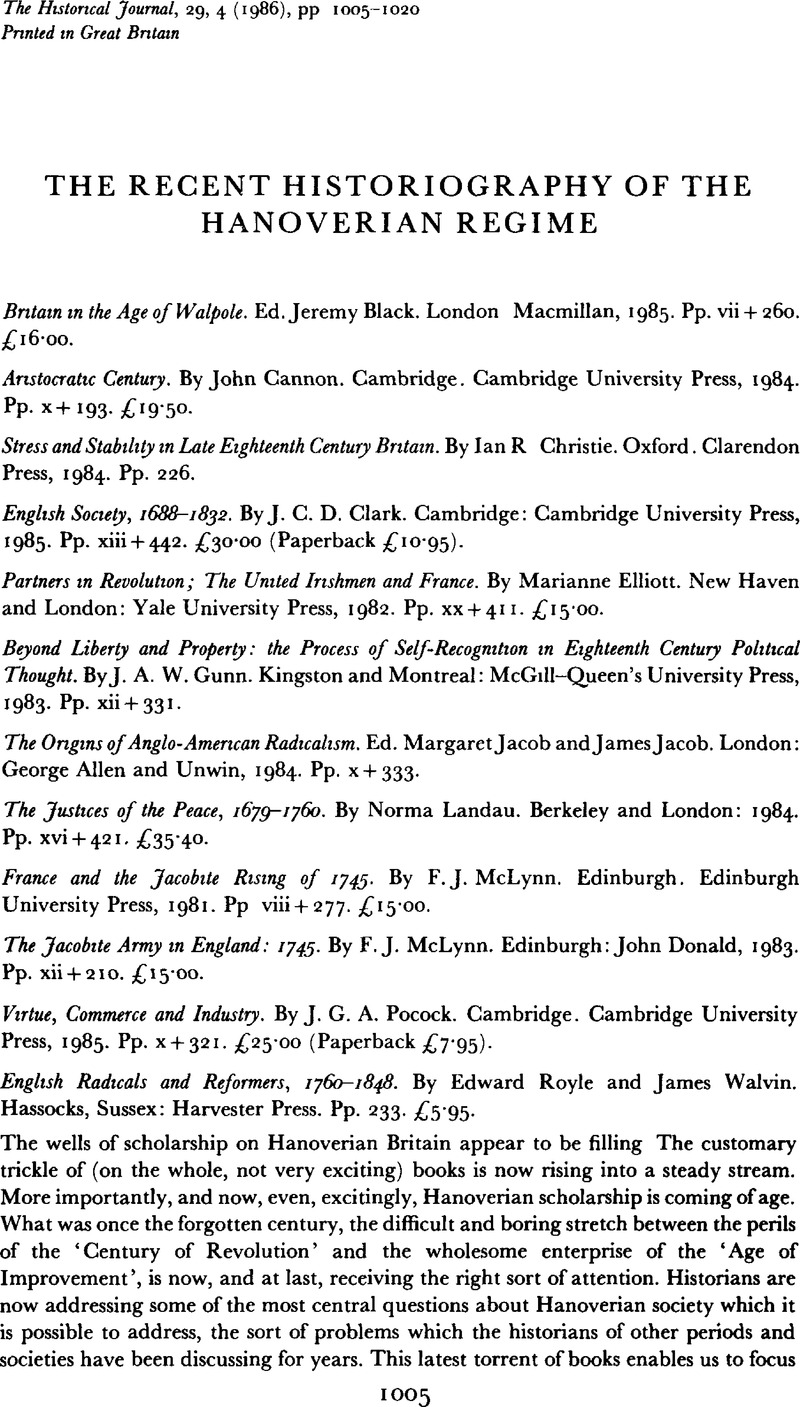No CrossRef data available.
Article contents
The Recent Historiography of the Hanoverian Regime
Published online by Cambridge University Press: 11 February 2009
Abstract

- Type
- Review Articles
- Information
- Copyright
- Copyright © Cambridge University Press 1986
References
1 Edward Thompson's ruminations on the nature of the Hanoverian regime are, astonishingly, not accompanied by systematic footnote references. (See ‘Patrician society and plebian culture’, I Journal of Social History, VII, 4 (1974), 383–405; ‘Eighteenth century English society: class struggle without class’, Social History, III, 2 (1978), 133–65. Dr Porter's popular volume, English society in the eighteenth century (Harmondsworth, 1982) was widely acclaimed when it appeared but it does not seem to me to have survived the criticisms of its methodology and, even more serious, of its ideological prejudices meted out by Dr J. C. D. C.ark (‘Eighteenth century social history’, Journal of Social History, XXVII, 3 (1984), 773–88). At the time of writing Dr Porter does not appear to have responded to these criticisms.
2 Phillips, John G., Electoral behaviour in unreformed England, 1761–1802, (Princeton, 1982), pp. 86–101Google Scholar; O'Gorman, Frank, ‘The unreformed electorate of Hanoverian England: the mid-eighteenth century to the Reform Act of 1832’, Social History XI, 1 (1986), 37–8Google Scholar.
3 Sedgwick, R. R., The House of Commons, 1715–54, (2 vols., London 1970), I, ixGoogle Scholar.
4 Clark, J. C. D., ‘The politics of the excluded: Tories, Jacobites and Whig Patriots, 1715–60’, Parliamentary History Yearbook, II (1983), 210–11Google Scholar
5 Ibid. p. 211.
6 Thompson, E. P., Whigs and hunters(Harmondsworth, 1977), p. 262Google Scholar.
7 Cannon, J. A., ‘New lamps for old: the end of Hanoverian England’, in The Whig ascendancy: colloquies on Hanoverian England (London, 1981), pp. 100–18Google Scholar.


